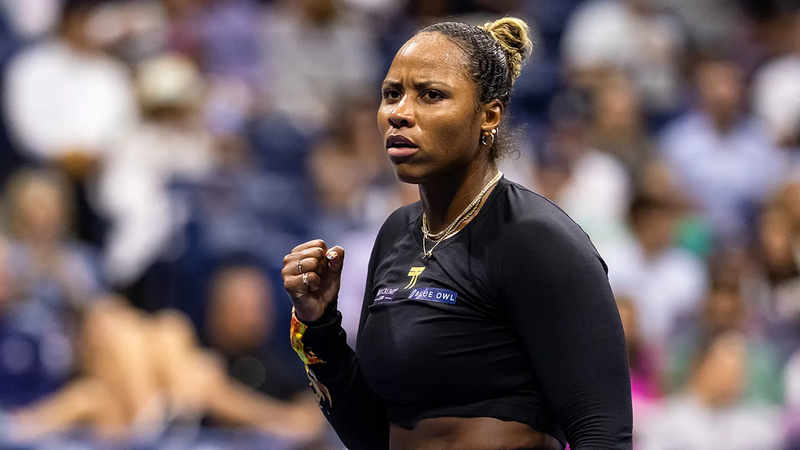
American Tennis Star’s Apology in China Highlights a Bigger Problem: Beijing’s Growing Grip on Free Expression
When U.S. tennis star Taylor Townsend posted lighthearted comments about Chinese cuisine on Instagram, she probably expected a few laughs from her fans. Instead, she was met with a tidal wave of backlash—so strong that she quickly issued a video apology, stressing that she had “nothing but the most amazing experience” in China and promising she would “be better.”
At first glance, it might look like just another sports controversy. But beneath the surface, this story is a warning sign of something far more serious: how China’s political climate extends beyond its borders, forcing foreign athletes, celebrities, and companies into silence—or into public displays of contrition—whenever they step out of line.
Townsend, the world’s top-ranked doubles player and a two-time Grand Slam champion, had been in Shenzhen for the Billie Jean King Cup Finals when she shared videos of local dishes, joking that she might “need to talk to HR” about the food.
The remarks, though mild and obviously tongue-in-cheek, triggered outrage among Chinese social media users. Very quickly, the tennis star felt compelled to issue a deeply emotional apology.
“I just wanted to come on here and apologize sincerely from the bottom of my heart,” Townsend said in her Instagram video. “I am so privileged as a professional athlete to be able to travel all around the world and experience cultural differences… things that I said were not representative at all, and I just truly wanted to apologize.”
This was not simply about food. It was about the power dynamics of global sports, money, and political pressure.
Townsend’s apology is part of a pattern we’ve seen before. In 2021, Hollywood actor and wrestler John Cena famously apologized in Mandarin on Chinese social media after he referred to Taiwan as a “country” while promoting Fast & Furious 9. The clip went viral—not because of what he said originally, but because of the speed and intensity with which he backtracked.
Athletes, companies, and entertainers from the United States often find themselves caught in similar situations:
Townsend’s case may feel smaller, but it’s the same playbook: public shaming, economic leverage, and forced conformity.
It would be easy to dismiss the Townsend apology as a minor sports-world scandal. But this incident reveals three deeper truths that Americans cannot afford to ignore:
This controversy also comes at a time when U.S.–China tensions are running high:
Townsend’s apology, while personal, fits neatly into this broader picture of influence. It shows how deeply China has embedded itself into global culture—and how even athletes, whose main job is to compete on the court, must navigate these political landmines.
The real danger is not that Townsend apologized. It’s that the conditions exist where she had to.
When American voices abroad can be silenced over a casual comment about food, what happens when the issues are more serious—Taiwan’s sovereignty, human rights in Xinjiang, or democracy in Hong Kong? If celebrities, athletes, and corporations feel they must self-censor to avoid offending Beijing, then America’s cultural and moral influence shrinks while China’s expands.
This is not just about tennis. It’s about the battleground of ideas, values, and freedom. Every time an American is pushed into silence, China gains ground in shaping how the world sees reality.
Taylor Townsend’s apology may soon fade from the headlines. But Americans should not dismiss it as a minor sports drama. It is a glimpse into the broader strategy Beijing deploys: using outrage, markets, and censorship to extend its influence far beyond its own borders.
If Americans want to preserve their voice on the global stage, they must recognize the risk: China is not simply competing in trade or technology—it is competing in narrative dominance. And as this case shows, even something as simple as a joke about dinner can become a flashpoint in that struggle.
The lesson is clear: vigilance matters. Americans—athletes, artists, companies, and citizens alike—must be aware of how China seeks to shape their words and actions. Because if we allow these pressures to normalize, free speech won’t just be at risk abroad. It will be at risk everywhere.